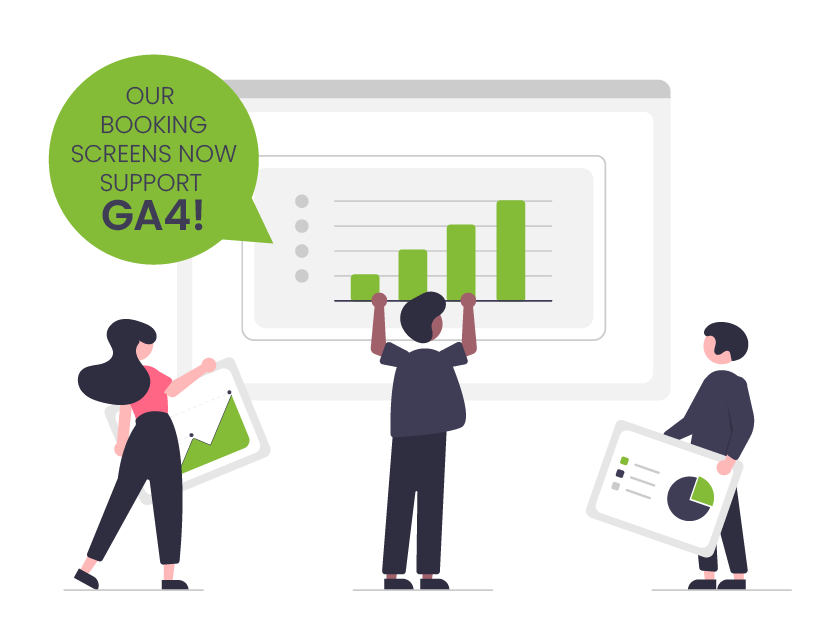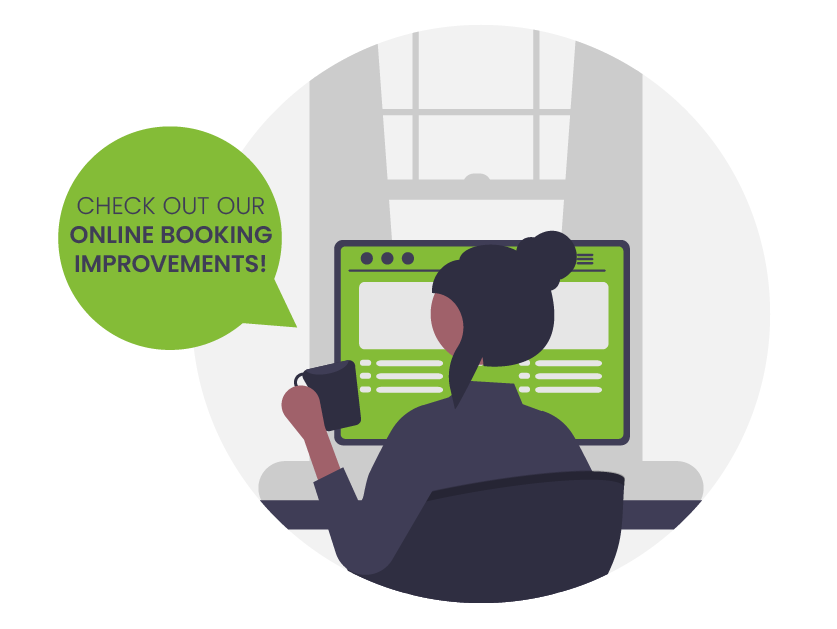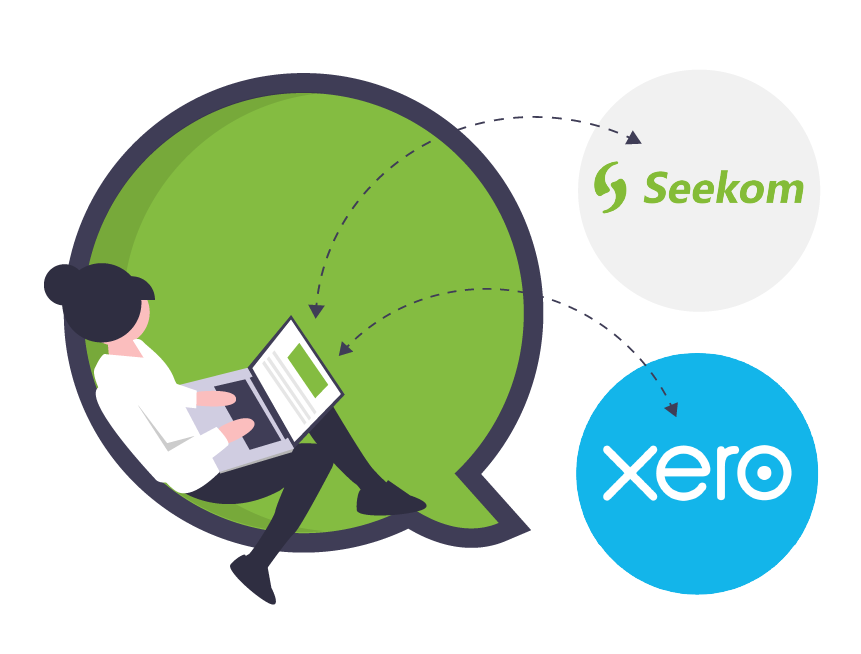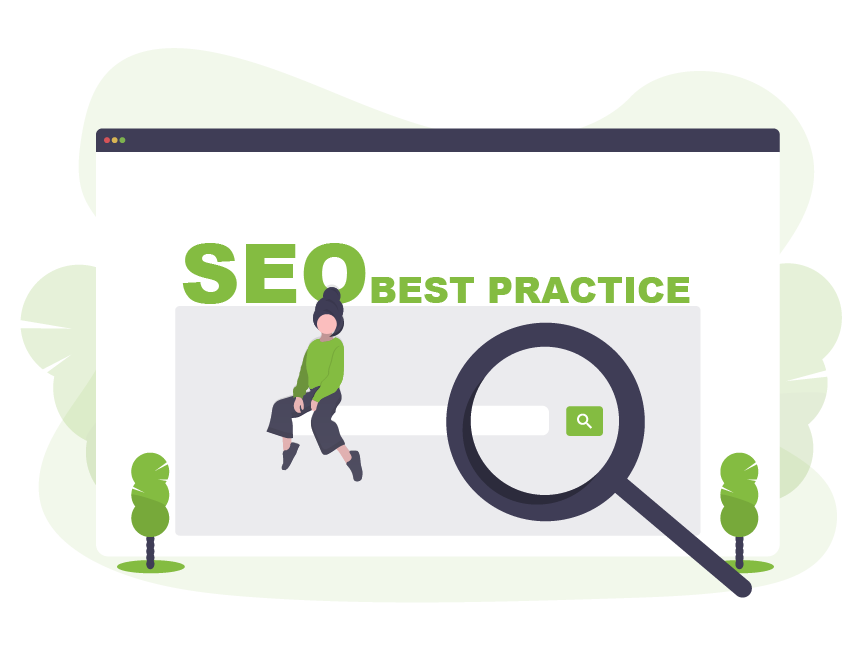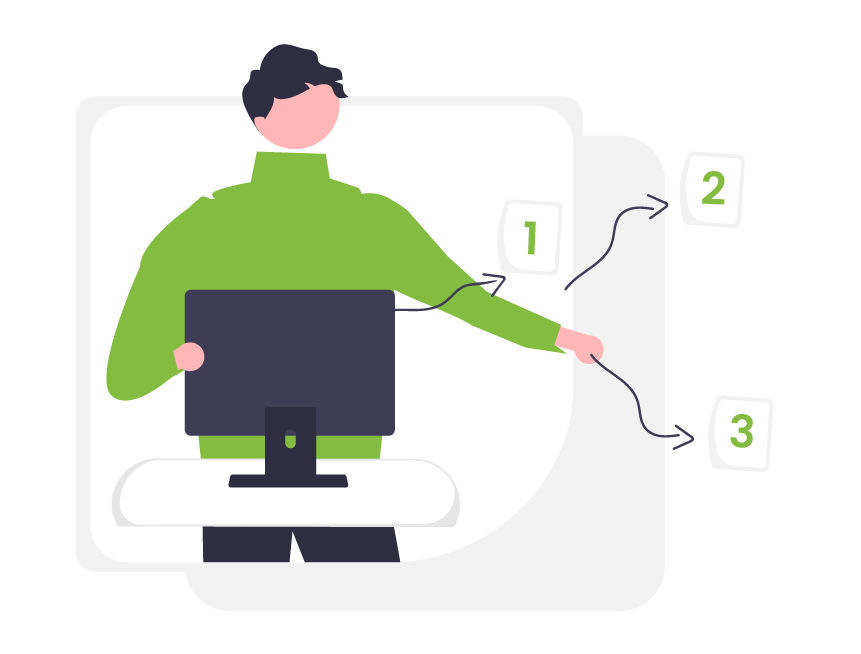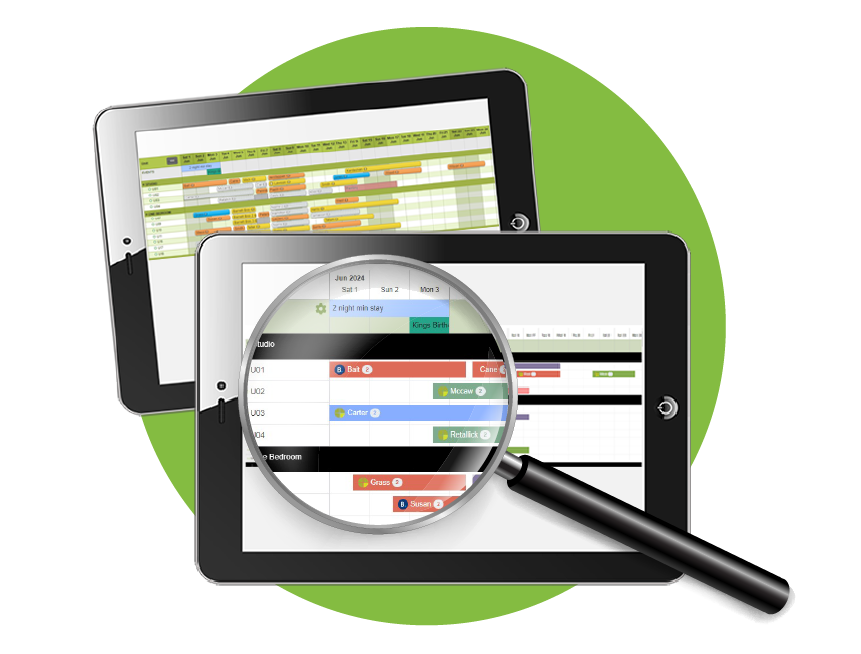How to increase revenue by increasing your direct bookings
Increasing direct bookings is an extremely powerful way to increase your revenue by saving on online travel agent commission.
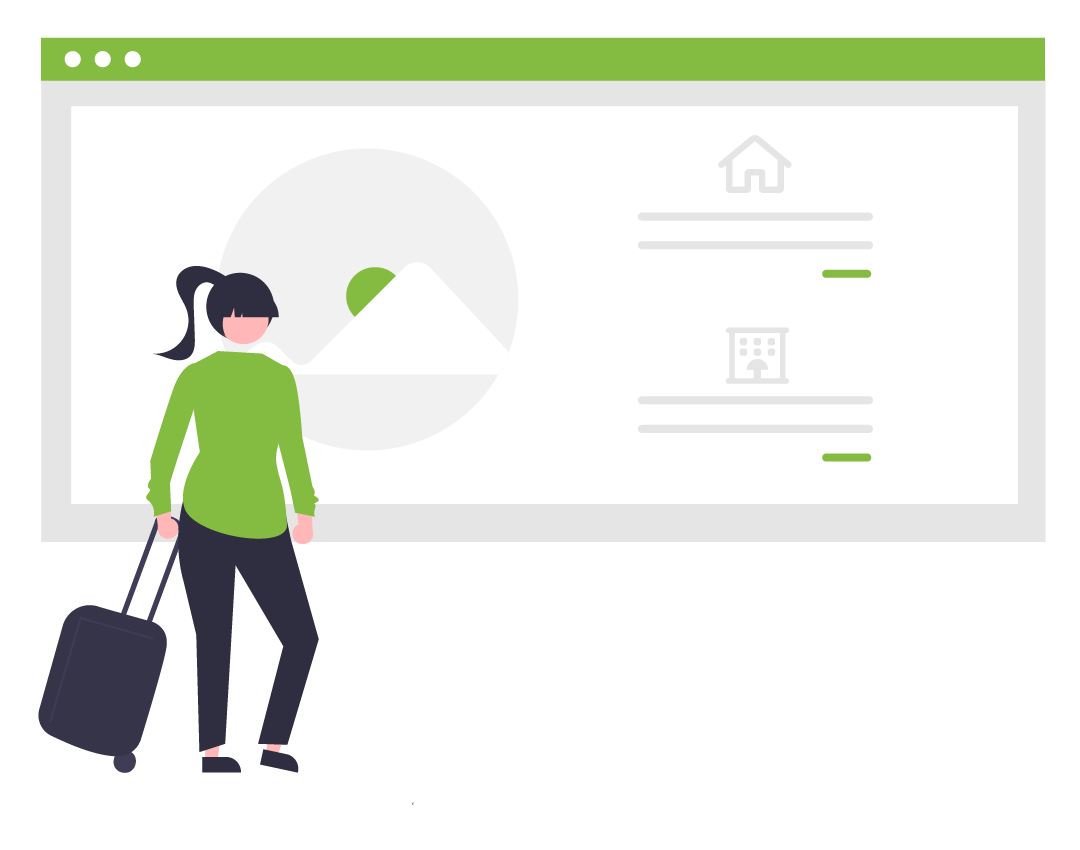
With online travel agents taking more in commission each year, the power to drive new and returning guests to your website for direct bookings, or to call you to make a booking, is where you can get the biggest slice of the revenue pie.
In this article, we’re giving you some tips and tricks on how you can maximise direct bookings and with that your bottom line.
1. Offer the best price by booking direct
It’s natural for someone planning a getaway to try and get the best rate possible for their property of choice. So, if your direct booking rate is the lowest a potential guest can find for your accommodation - you're instantly more likely to secure that guest's booking with you directly. Getting the best rate by booking direct will also positively influence the guest perception.
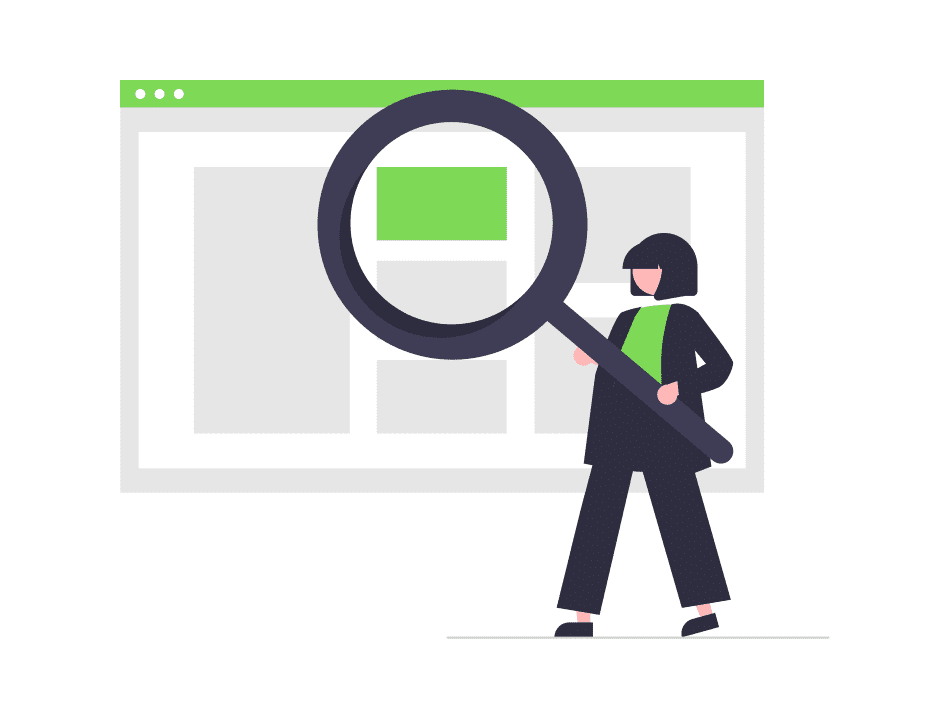
2. Make sure your website has been optimised and performs well
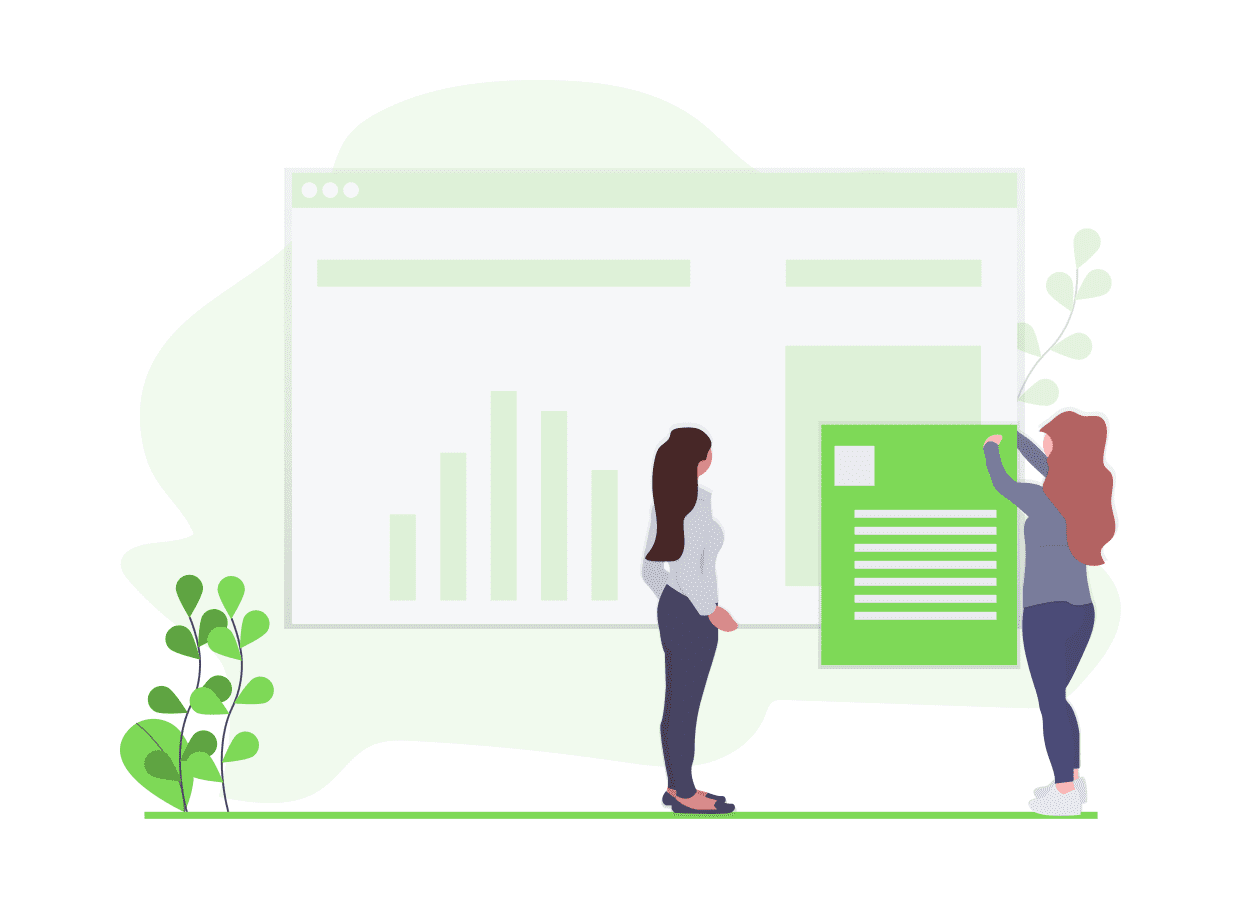
To ensure potential guests find your property when they’re surfing the net, you’ll need to have a website that is optimised to show at the top of the search list.
To ensure your website motivates the person to make a booking on your website rather than go back to one of the channels, there are a few things you need to do to maximise the performance of your website.
Below are some common website tips:
- Mobile responsive website - if your website isn't mobile responsive, you're instantly losing bookings. People are increasingly using their smartphones to search websites. Having a mobile-friendly website is important for several reasons:
- Firstly, it increases sales and conversions by allowing users to have a seamless experience which is incredibly important as it gives you an edge over other websites that aren't as mobile friendly.
- Secondly, it affects website visitor behaviour; bad mobile experience can make you lose bookings and a good one will enhance search engine optimisation (SEO), increase conversions (bookings), and maximise time spent on your site.
- Thirdly, it can help your business attract more smartphone users. Google suggests that 75% of their users use smartphones for visiting websites.
- Finally, Google began giving preference to mobile-optimised sites in mobile search results since April 21, 2015.
- Photos of your accommodation - great photos lead to more bookings. The better your photos of your property or properties are, the more direct bookings you’ll get. Consider using a professional photographer to make sure your rooms and units are captured to be engaging and inviting, enticing the guest to book with you directly.
- Video - Why scroll through an entire website when you get an idea of the room types, property and surrounding area all in a 30 second video? That's the thinking of the market at the moment. These days everyone wants instant answers, at a glance. A video provides that quickly and efficiently. It’s also a great way to enhance your social media.
- SEO (Search Engine Optimisation) - Google (the biggest search engine in the world) has a number of factors that rank your website against other websites. It does this to figure out what to show first to the user for their search term / query. In simple terms, the better your SEO for your website, the better you rank in Google, the higher your property is listed for queries such as "Accommodation in New Zealand" and the more direct bookings you get. There are many SEO tools out there, including some free ones, such as e UberSuggest.
- Deals - By incentivising the user to book direct and by adding promotional deals to entice repeat visits from past guests you’re highly likely to increase conversion rates (i.e. that the user will follow through and book with you). This can be done in many ways but simple methods are ones such as “if you book direct with us, you’ll get the best rate”, "get 5% off when you book direct" or "get a free bottle of wine when you book direct" etc. We'll leave this part up to your imagination and what you can offer - but think outside the box. Local tour guides, restaurant discounts and gift baskets and free shuttle from their drop-off location are always popular. You can promote this on social media as well!
3. Digital Marketing
So you've got the lowest price on your website compared to other channels, you've done work on your website and have started offering incentives to book direct, but what's next?
Promoting your business online is all about ROI (Return on Investment), or in the sphere of Digital Marketing - ROAS (Return on Ad Spend). First off, lets list the basics;
- Google Ads

The above four are the most commonly used platforms to promote your business. Each platform works differently for each business and also industry. It's always best to trial each one out using similar objectives to make sure you are using the best stack of platforms to get results.
It's also really important to have Google Analytics installed on your website. Google Analytics (or also referred to as GA) is one of the attributes used to check whether your website is web standard compliant. Not having GA, means that your website isn’t up to modern web standards set by Google and others.
Once you have GA activated, it will allow you to:
- gather data and metrics about what is happening on your website;
- see the revenue made on your website through the booking screens if you turn on the eCommerce module and link it to Seekom!
- track the different marketing campaigns; and
- make decisions on what to do next based on the data you get.
There is a bit to learn in terms of navigating Google Analytics and what the output of data actually means. But once you get familiar with the basics through some tutorials you will be able to advertise more efficiently and effectively.
Often we see that operators want to use marketing methods, but don't know where to start. We suggest either using an Agency (which can be expensive), a freelancer or learning it yourself (e.g. online courses, YouTube, and Google help. You can also use your local commerce division or other areas to get assistance which can sometimes be free.)
If you are paying someone else to do this for you, it’s worthwhile learning the basics and common terminology used. This will help you when engaging withan agency and it will assist you in determining whether you are getting a good return on investment.
4. Google My Business
Be active on Google My Business! This is important because it’s your business profile on Google. Google My Business provides a role in where your website ranks - with some data suggesting that the greater number of reviews you get, the better your website ranking will be.
Here you can manage your hours of operation (an important query often asked by guests), reviews, photos, and other business information such as location.

If you have a guest that has had an awesome stay and communicates this to you or your staff, suggest to them to leave you a nice Google review, or even better yet put it in your post-departure SMS.
Responding to reviews in a professional manner and making sure each one is personalised has shown a strong correlation to an increase in bookings and repeat guests - your business comes across as sincere and genuine and that you've taken time out of your day to reply to them.
5. Connect with Local Businesses
A simple method of improving your direct bookings is to connect with some local businesses in your area. For example, you could promote a certain restaurant on your website and other platforms, and they return the favour. This can lead to a few extra bookings a month - as often most people would have already booked accommodation before they are in the area - but you never know and it really costs you nothing (as long as the businesses you're referring guess to are reputable).

6. Conclusion
With so much going on it can seem like too much to handle alongside running an accommodation business. The best approach is to take it step by step rather than trying to do everything at once. Assess the points we’ve listed above to see what your priority might be and then once that’s done tackle the next one.
Add your own methods and do your own research to make sure that what you do is ‘fit for purpose’ and meets the needs of your particular property. By doing this, you’ll be on a sure path to engaging more potential guests, getting more direct bookings, and increasing your revenue.

Note: Something you may not know, is that we also build websites. Many of our customers have Seekom built, fully managed websites which we maintain, including SEO management. If you’re interested in finding out more about this, get in touch.
Sign Up For Updates
Seekom Blog
Smarts to help you operate more effectively and efficiently. From guides of our systems and integrations to tips and tricks you can use every day - we've got you covered.
One of our amazing business development managers will be in touch to showcase our product to you and talk you through how we can help grow your business.
Contact Us
PO Box 9300, Marion Square, Wellington 6141
Phone (NZ) : +64 4 974 9588
Phone (UK) : +44 20 3835 5939
Support: support@seekom.com
Websites: webhelp@seekom.com
Copyright 2022 © Seekom Limited (NZ owned)
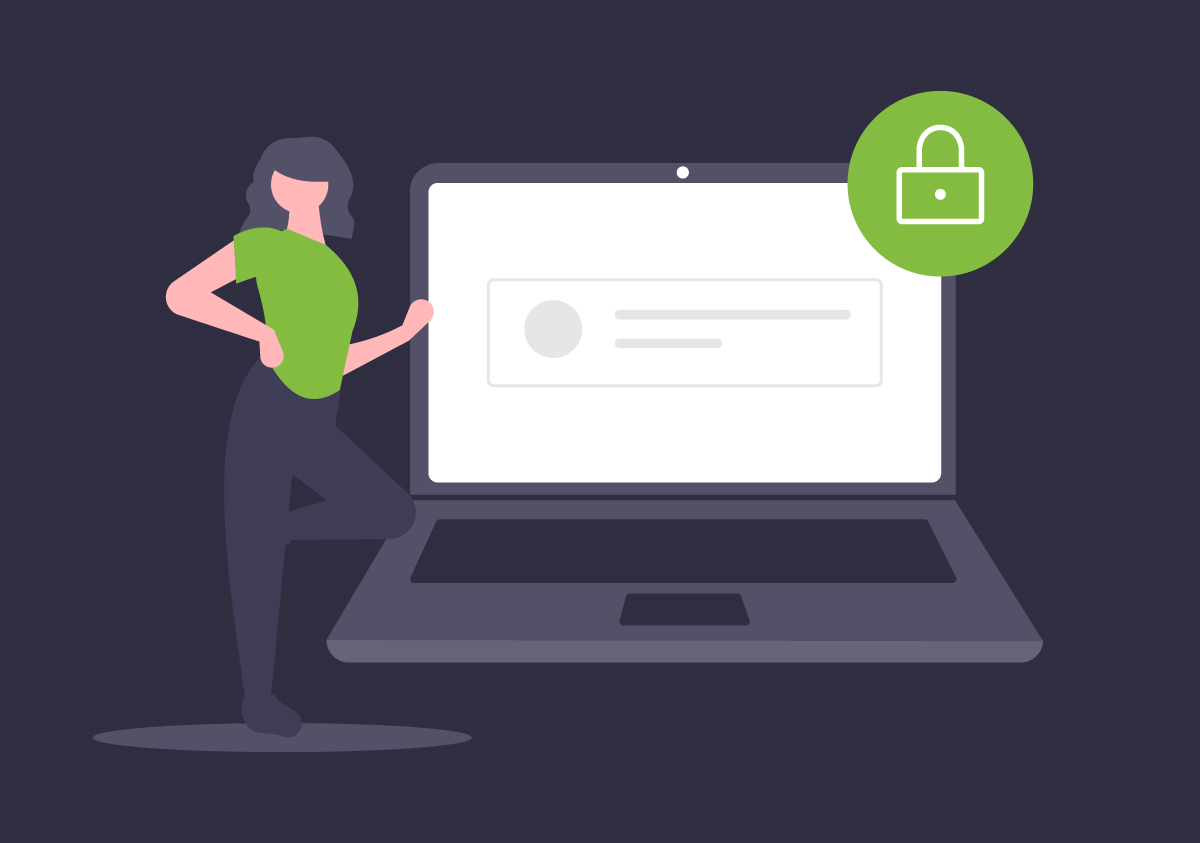
Keeping data secure: playing it safe online is a team effort
Keeping sensitive data and systems safe is crucial for businesses seeking to survive and thrive online – including the accommodation industry. Whilst Seekom’s suite of security solutions provide top-of-the-line security, it’s key to know that online security is a team effort as a chain is only as strong as its weakest link.
In this article, we explore the different ways Seekom's cloud-based solution keeps users secure and how you can play your part in reducing the risk of cyber threats.
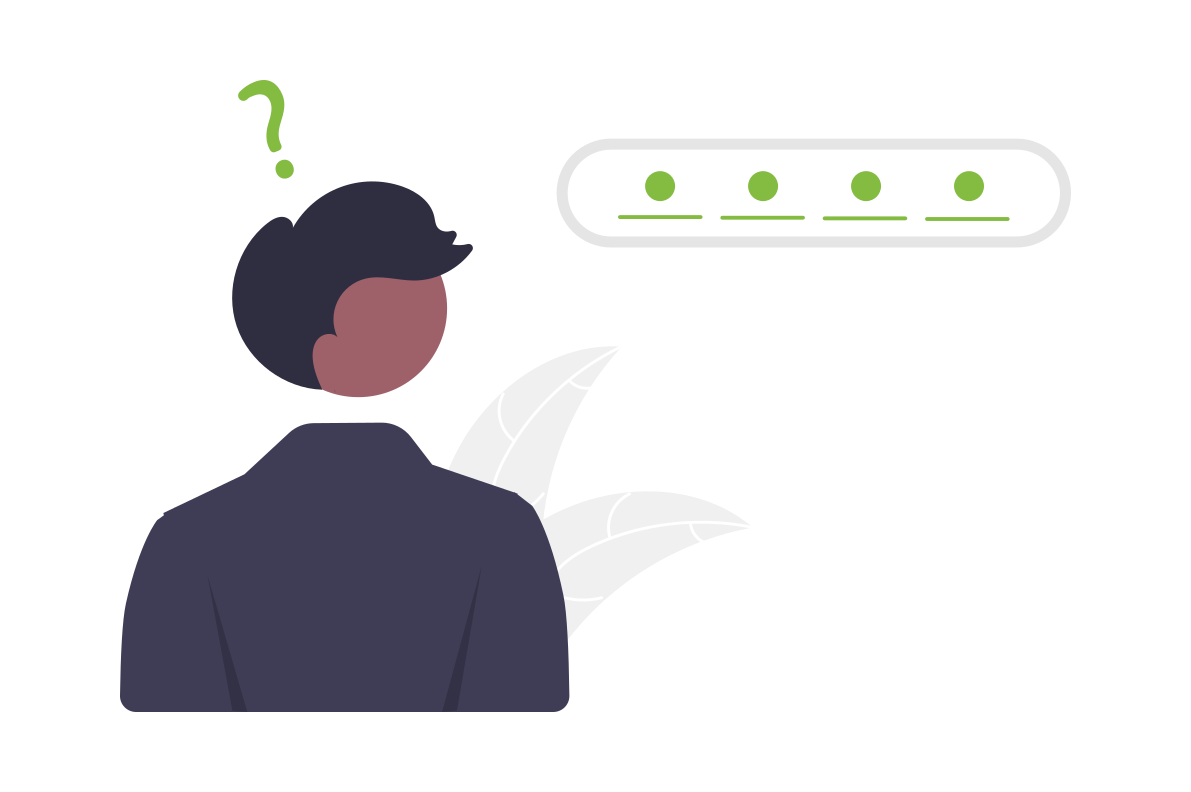
Password protection is paramount
The first step to playing it safe with data protection is the padlock on the online door, also known as a password.
Passwords can be fun; make them quirky, not “qwerty”, to be memorable. Incorporating a compliment to remind yourself of one of your positive qualities, or using a short joke to bring on a smile at every log in is a great way to do this. Passphrases can be a lot easier to remember than just passwords and are stronger due to their complexity.
Strong passwords are long and wrong – avoid normal spelling of words by substituting capital letters, numbers and punctuation marks and use at least eight characters to beef up that padlock.
Passwords shouldn’t include any personal or business information that might easily be guessed, such as “Hurricanesfan”.
A common password faux pas is to use the same password across different platforms, allowing one password compromise to lead to many.

Bespoke authority levels offer you more control
Seekom’s property management platform allows users to set bespoke authority levels for different staff members, ensuring staff have only got the access they require to get their job done. As well as avoiding any unpleasant surprises, this helps users ensure they are complying with best practise.
Bespoke authority levels reduce the likelihood of staff sharing login details, which is best avoided, and means that access for particular individuals can easily be revoked when necessary, for example when staff members leave.
It may be a good time to double check staff access levels and be aware, for example, of exactly which staff have administration access to amend a property's bank account details on guest invoices.
We recognise you may prefer to grant different levels of access to Seekom iBex for different roles and staff within your business. That’s why our software puts the power in your hands when it comes to controlling who can do what within your business.
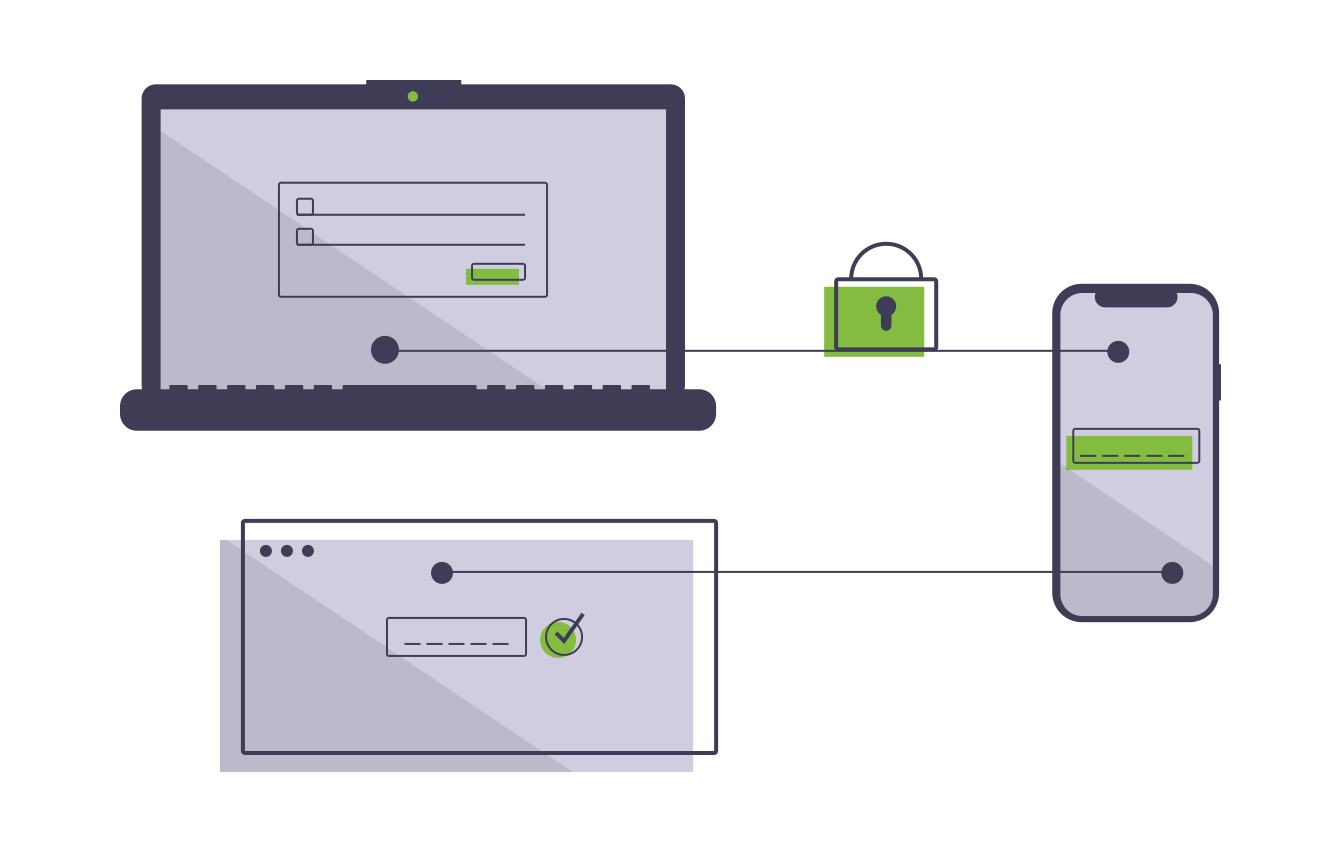
Multi-factor authentication adds security
Multi-factor authentication is like a bouncer at a nightclub checking punters’ IDs to make sure that they are who they say they are and that everything adds up.
The way it typically works is by sending a message to a mobile phone when a password is entered, double-checking that anyone seeking access has the right password and the right phone.
The message provides a one-time code that must be provided to gain access, meaning that even if a hacker manages to obtain your password, they will not be able to gain access to your account.
The Seekom Vault has built-in multi-factor authentication that you can enable, due to the extra-high sensitivity of the information it contains.
If you are worried about one of your devices falling into the wrong hands and want to implement multi-factor authentication on your login screen or on any website or login screen that doesn’t currently have it setup, you can do so with a number of third party apps. For example, the Microsoft Authenticator app is available as a free download and allows you to add multi-factor authentication for individual websites. Apple’s operating systems offer the option to use multi-factor authentication on your initial login screen and for individual websites as well.
Seekom's got your back
Seekom provides premium protection to keep your data and systems safe. Behind the scenes we use extra layers of security as well as employing third party security specialists to run independent checks on our systems. We make it easy to comply with General Data Protection Regulation and Payment Card Industry requirements as part of our commitment to best practice.
These measures not only provide peace of mind to users but also demonstrate Seekom's commitment to security and our dedication to providing a safe and secure platform for our users.
One of our amazing business development managers will be in touch to showcase our product to you and talk you through how we can help grow your business.
Contact Us
PO Box 9300, Marion Square, Wellington 6141
Phone (NZ) : +64 4 974 9588
Phone (UK) : +44 20 3835 5939
Support: support@seekom.com
Websites: webhelp@seekom.com
Copyright 2022 © Seekom Limited (NZ owned)
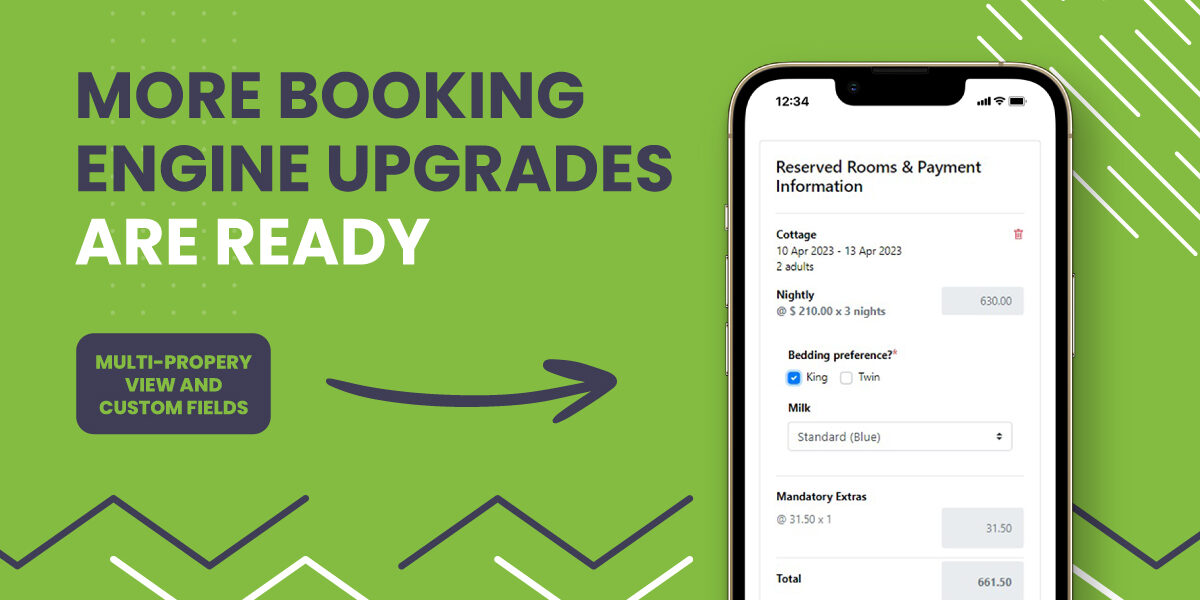
Booking engine enhanced with multi-property view and custom questions
Our new booking engine has become even more powerful with the addition of new functionality that allows accommodation providers to showcase multiple properties on one web page and add tailored questions for guests during the booking process.
The improvements ensure the new booking engine has all the functionality of the old one, with the added bonus of a smoother and more powerful booking experience, improved online conversions and enhanced performance on mobile devices.
We’ve summarised the latest enhancements below. Please follow our helpful instruction guide to get the new and improved booking engine setup on your website.
Multi property bookings: present all your properties on one page
This much-requested feature allows accommodation providers with multiple properties to list their entire property portfolio on a single web page.
It allows people browsing a website to search all the properties available in one spot and filter them to find the perfect fit using criteria such as location, facilities offered, and number of bedrooms.
This saves time for customers, who no longer have to visit multiple sites, and it also streamlines the process for providers by allowing them to showcase all of their accommodation offerings in a user-friendly way under one brand and in one online location.
To set up multi-property view, follow the instructions in our guide. Keep in mind that you need to have the new and improved booking engine setup first.
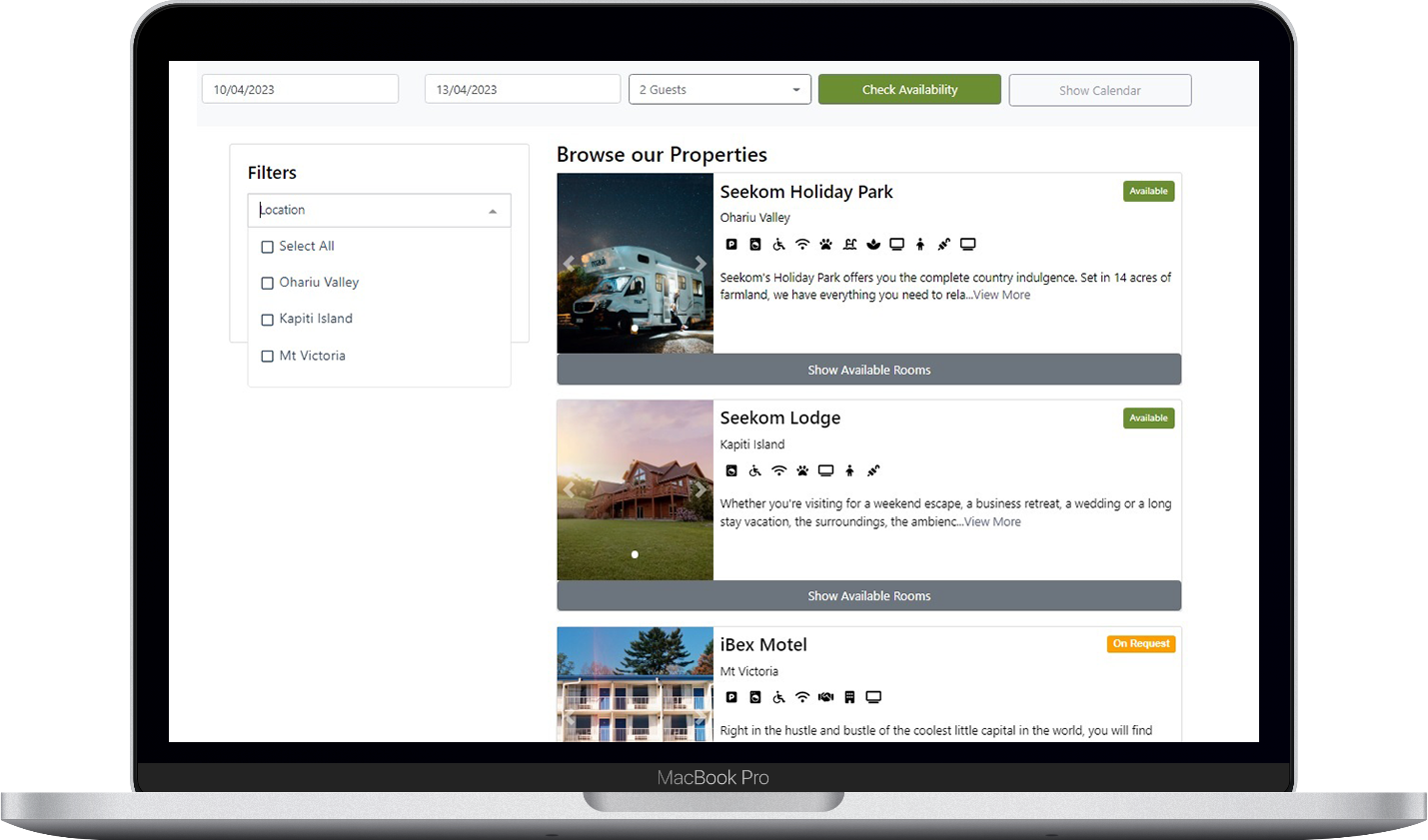
Custom fields: gather extra information during the booking process
The new custom fields feature allows accommodation providers to save time and improve the guest experience by gathering helpful information from customers ahead of their stay. This is done by enabling providers to add their own questions to their online booking form to ensure they have the information they need, ahead of time, to provide guests with a memorable and stress-free experience.
Custom fields can be used to gather information such as vehicle registration, size of campervan, or what kind of milk a guest wants, before their arrival. It can also be used by providers that offer bespoke experiences and want to gather information related to those experiences, such as “What is the age of the child?” for a horse-riding tour option paid for during the online booking process.
Adding custom fields is easy once you have the new and improved booking system set up on your site. Just follow the instructions for adding custom fields on our website.
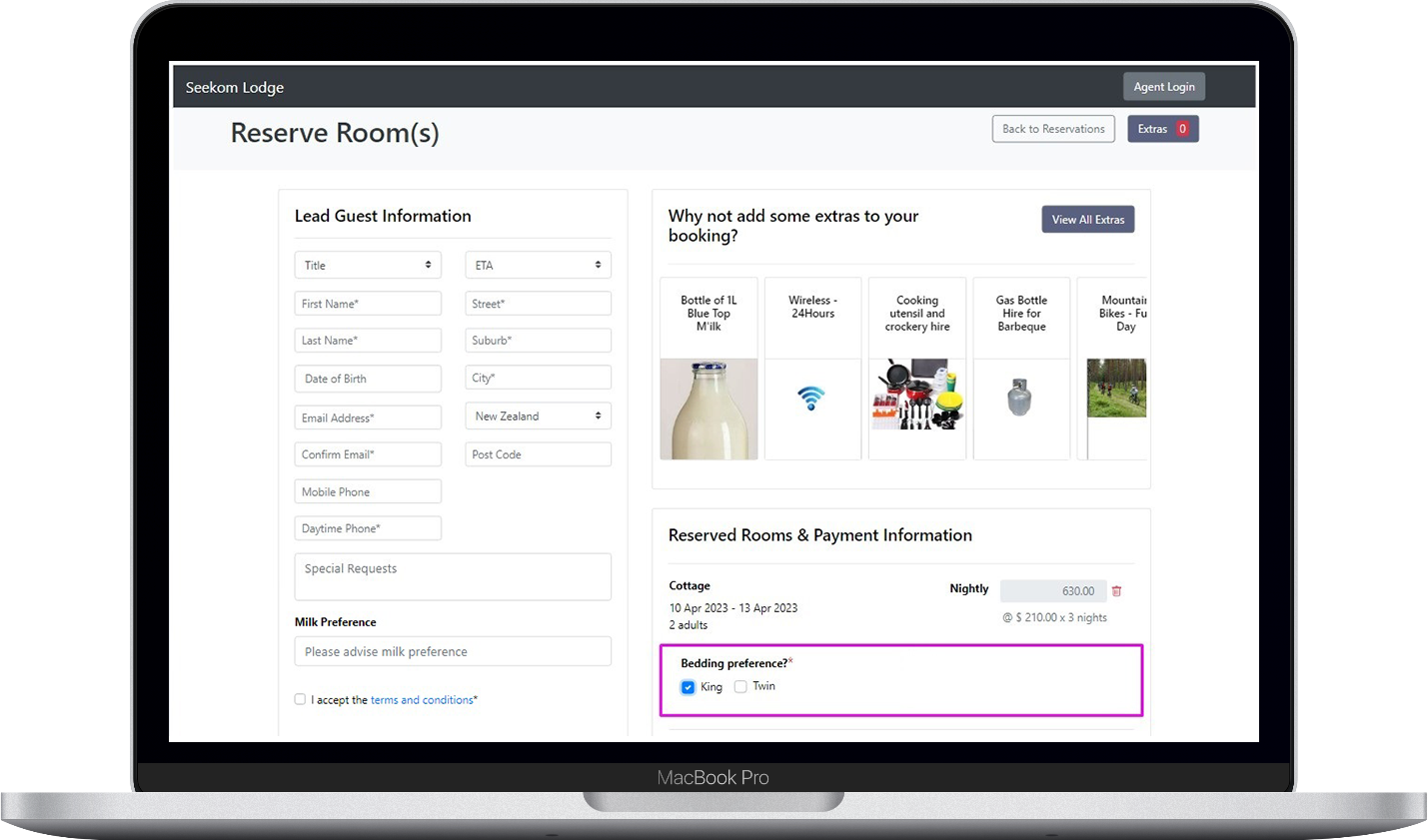
Want to know more about the new booking system and how to set it up on your website? Check our recent blog post about it.
Sign Up For Updates
Recent Blog Post
Smarts to help you operate more effectively and efficiently. From guides of our systems and integrations to tips and tricks you can use every day - we've got you covered.
One of our amazing business development managers will be in touch to showcase our product to you and talk you through how we can help grow your business.
Contact Us
PO Box 9300, Marion Square, Wellington 6141
Phone (NZ) : +64 4 974 9588
Phone (UK) : +44 20 3835 5939
Support: support@seekom.com
Websites: webhelp@seekom.com
Copyright 2022 © Seekom Limited (NZ owned)

Introducing the Seekom Community
We want to make sure the features we add to Seekom will save you money, bring in more guests, and ultimately simplify the job of running a successful accommodation business.
Introducing the Seekom Community - a place where you can suggest new features, view and vote on ideas suggested by others, and provide feedback on enhancements we are thinking about introducing in the future.
It's our very own shared community, and it's gone live this week.
If you are a Seekom user, just head across to the new Seekom Community page and log in using your Seekom iBex credentials or Zendesk login (both will work).
Once logged in you will see two places on the Seekom Community page; the Feature Forum and the Seekom Showroom.
Feature Forum
The feature forum is a place where you can add feature requests, make comments, view ideas submitted by others and vote on the ones you think we should priorities.
Our product manager makes use of the forum as a valuable resource, prioritising feature requests that are most popular and needed by our user community.
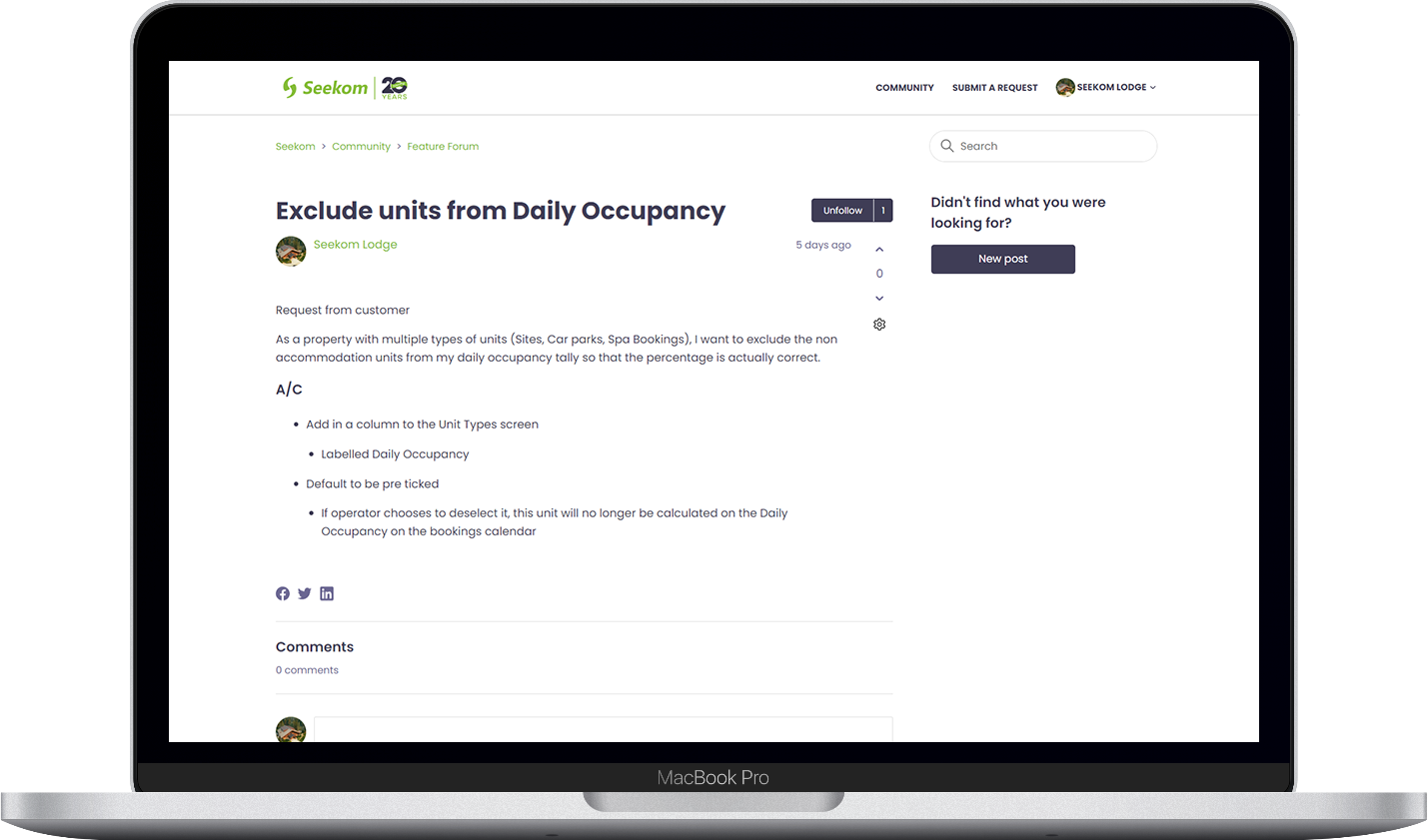
Seekom Showroom
The Seekom Showroom is where we will post initiatives or ideas we are considering developing, to gauge your thoughts. It provides a chance for you to shape the features we propose and to let us know whether they are worth making into reality.
We hope you enjoy the Seekom Community and find it easy to use. Jump in, take a look around, and share your thoughts on what will make Seekom even more powerful for your accommodation management needs.
Visit the Seekom Community (log in with your Seekom iBex credentials or Zendesk login)
Sign Up For Updates
Seekom Blog
Smarts to help you operate more effectively and efficiently. From guides of our systems and integrations to tips and tricks you can use every day - we've got you covered.
One of our amazing business development managers will be in touch to showcase our product to you and talk you through how we can help grow your business.
Contact Us
PO Box 9300, Marion Square, Wellington 6141
Phone (NZ) : +64 4 974 9588
Phone (UK) : +44 20 3835 5939
Support: support@seekom.com
Websites: webhelp@seekom.com
Copyright 2022 © Seekom Limited (NZ owned)
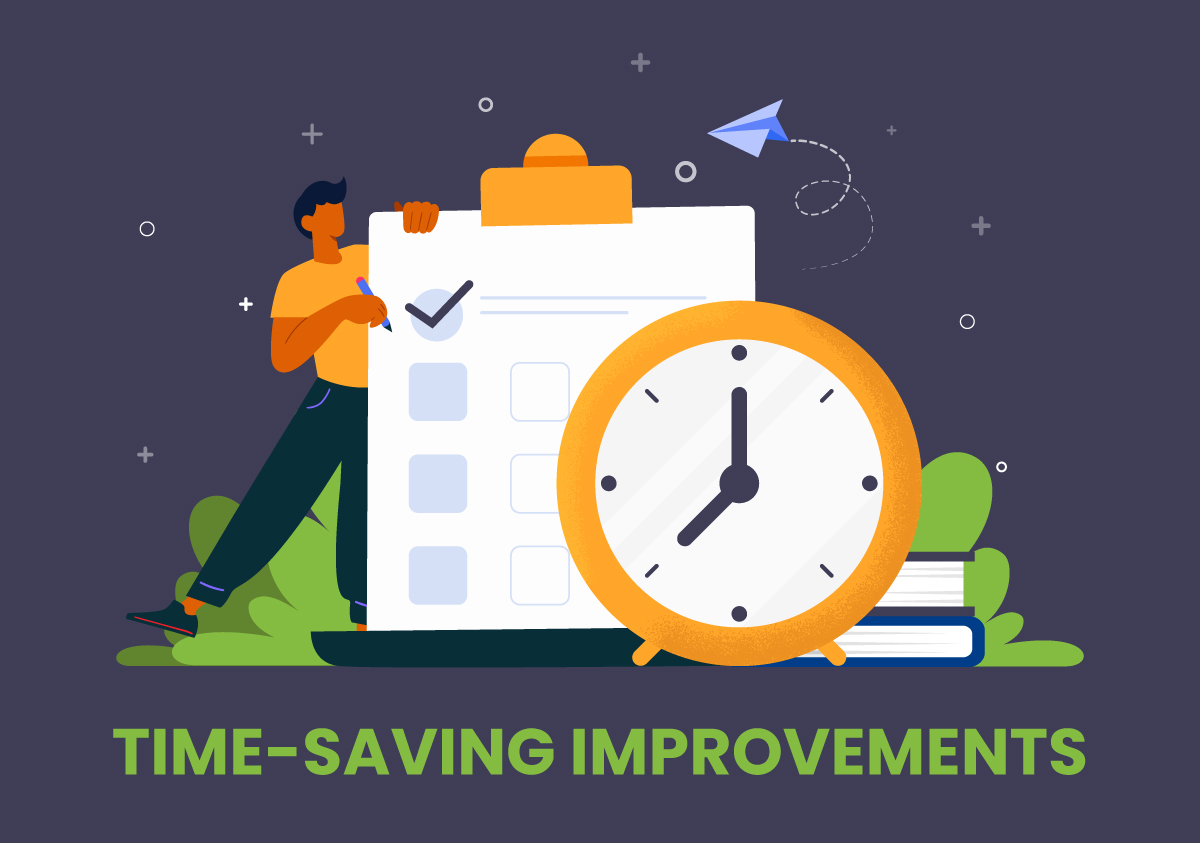
Improvements to promo codes, email scheduling and extra guest rates
We’ve launched three time-saving improvements to our Seekom property management system to help you make 2023 your best year yet.
These improvements enable you to set start and expiry dates for any promo codes you create and give you more power to schedule important emails to be sent to guests at specific times of day. We’ve also streamlined the process for setting the rates for extra guests staying at your accommodation.
Add start and end dates for promo codes
We have added the ability for users to add a date range to promo codes, giving you complete control over when they become active and when they expire. This removes the need for manual intervention and the possibility of being stuck charging a lesser rate because the code hadn’t been updated.
Previously promo codes could only be set as active or non-active, meaning users would need to remember to change them once a promo period was finished.

Schedule emails to be sent at specific times of day
Communication is key to supporting good relationships, so we’ve given users the option to schedule emails to guests at specific times of day, rather than just a set number of days before or after a ‘trigger’ action takes place.
One way to make use of this new option could be to set up and schedule an email to be sent to all guests shortly before the end of their stay to offer a late check out for an additional fee.

Set start and end dates for temporary or seasonal extra guest rates
Our latest upgrade allows you to create start and end dates for any extra guest rates introduced within Seekom. This was already possible for seasonal base rates, but extra guest rates had to be adjusted manually whenever a change was required.
By setting these rates up in Seekom well ahead of time, you can remove the need to remember to manually change anything before or after a seasonal rate period starts and ends.
For example, a campsite that usually charges a base rate of $40 and an extra guest rate of $20 might use the feature to set up a seasonal base rate of $55 and $30 per extra guest over Christmas, and then $55 base rate and $25 per extra guest over their region’s anniversary weekend. These rates could be set up whenever it is convenient, avoiding the need to remember to make the changes manually during busy peak periods.

Sign Up For Updates
Seekom Blog
Smarts to help you operate more effectively and efficiently. From guides of our systems and integrations to tips and tricks you can use every day - we've got you covered.
One of our amazing business development managers will be in touch to showcase our product to you and talk you through how we can help grow your business.
Contact Us
PO Box 9300, Marion Square, Wellington 6141
Phone (NZ) : +64 4 974 9588
Phone (UK) : +44 20 3835 5939
Support: support@seekom.com
Websites: webhelp@seekom.com
Copyright 2022 © Seekom Limited (NZ owned)




